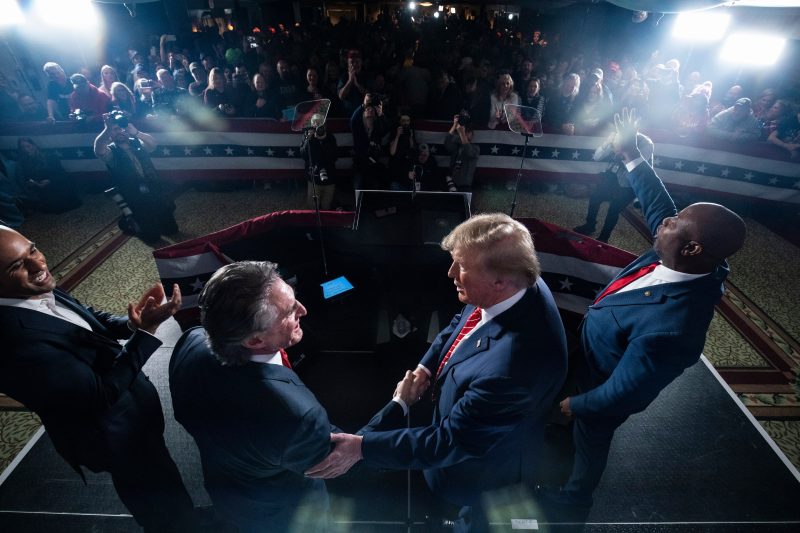In a world where political polarization seems to be at an all-time high, the right has recently been sounding the alarm about what they perceive as a growing threat to democracy under the Biden administration. This narrative of a Biden dictatorship has gained traction in certain conservative circles, prompting concerns about the future of the United States and its commitment to democratic principles.
One of the key arguments put forward by those on the right is the notion that President Biden and his administration are attempting to consolidate power and undermine democratic norms. By issuing executive orders, pushing for various policy changes, and using rhetoric that some perceive as authoritarian, critics argue that Biden is displaying dictatorial tendencies.
Furthermore, the right has raised concerns about the role of big tech in shaping political discourse and potentially suppressing dissenting voices. Social media platforms have come under fire for their content moderation practices, with some accusing them of silencing conservative voices and censoring viewpoints that dissent from the mainstream narrative.
Additionally, there is a fear among some on the right that the Biden administration’s initiatives, such as gun control measures and calls for increased government intervention in various sectors, are steps towards greater government control and erosion of individual freedoms. This fear is often amplified by comparisons to past authoritarian regimes and warnings about the fragility of democratic institutions.
On the other hand, critics of the Biden dictatorship narrative argue that such claims are hyperbolic and exaggerated. They point to the fact that the checks and balances of the U.S. political system are still in place and that accusations of dictatorship are unfounded. They argue that labeling the Biden administration as dictatorial is a tactic to rally support among conservative voters and sow distrust in the current administration.
Ultimately, the debate over the so-called Biden dictatorship reflects broader concerns about the state of democracy in the United States. In an era of rapid political change and deep societal divisions, discussions about the health of democratic institutions and the balance of power between the branches of government are crucial. By engaging in this debate, Americans can work towards a better understanding of the challenges facing their democracy and take steps to address any real threats to its integrity.


























